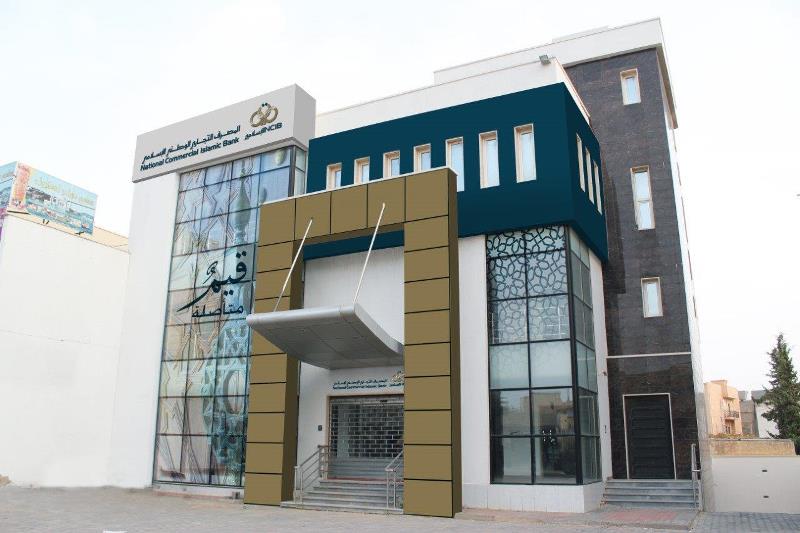MR. Al-Sedig Khanfar – General Manager – The NAtional commercial Bank
Q: How has the COVID-19 crisis impacted the financial sector in general and the National Commercial Bank in specific?
A: The crisis has caused a sudden shock to the global economy in its entirety. Never before have modern economies shut down this abruptly. As a result, widespread bankruptcies are potential and the risks of the instability and possible systemic failure in banking systems are increasing. The pressure on the banking system is now surging and higher defaults on debts are looming. Yet, and like other financial institutions, the National Commercial Bank has taken measures in response to the crisis. Above all, we remain focused on maintaining ongoing operations. We have made sure to be proactive in rescheduling loans for clients severely influenced by the COVID-19 crisis. Keeping a flexible credit risk management has also been a necessary step we took.
Q: What measures has NCB taken in response to the current crisis?
A: It was imperative to conduct a thorough hazard assessment to identify potential workplace risks related to COVID-19. Following, NCB developed a combination of hazard controls to prevent infection. To begin with, we took the stance of prioritizing the well-being of our employees. Putting their health and safety first, we found it necessary to energize campaigns on physical and mental health. Post signs were placed in the branches encouraging employees to constantly disinfect workspaces and equipment after use. Other measures included adjusting workstations to help employees maintain social distancing among themselves and with customers. In-person meetings were avoided when possible; workshops and meetings have been conducted via videoconferencing instead.
Q: What about customers? What procedures did the bank take in their regard?
A: Given the dynamic and ongoing nature of the COVID-19 crisis, we were adamant to not lower the bar of the quality of services we offer to our clients taking into consideration their safety and well-being. Keeping up with World Health Organization guidelines of social distancing, we used visual cues such as floor markings and strategically spaced chairs in waiting areas to discourage social gathering. Posters, infographics, and visuals were placed at entrances and in strategic places in all branches in addition to NCB official social media platforms to remind clients of safety procedures.
Q: Did you provide your clients with technological solutions tailored specifically in the face of the crisis?
A: Thanks to our deep investment in technological solutions, it has been natural to develop heavy campaigns that encouraged clients to use teller machines (ATMs), online banking, and highly-advanced mobile banking app and SMS services for routine transactions that do not require personal assistance. E-banking has enabled us to continue to deliver non-stop services despite the critical conditions the global economy and financial sector are facing.
Q: How will the National Commercial Bank maintain the trust of customers and ensure its financial stability in the near future amid the novel crisis?
A: NCB management believes that reassessing the bank’s risk management is key to help manage our continuity. This will include evaluating our risk management framework including operational resilience, scenario analysis, cost and efficiency optimization, and quantifying financial risk amid COVID-19.
National Commercial Bank Achievement
Since 2017, and to achieve its strategic goals, the management of the National Commercial Bank has taken steady steps reflected in essential projects in organizational restructuring, Information Technology (IT), and Information System (IS). NCB launched its Authority and Responsibility Matrix project in accordance with international banking standards. Another project, Organizational Restructuring of Departments, was executed to restructure and process engineering operations together with launching the Qualification Project for the Second Line Leaders project.
To keep its promise of providing up-to-date financial solutions, NCB has paid great attention to Information Technology. Starting with Core Banking System Upgrade project, the bank upgraded its Oracle FLEXCUBE to Oracle FLEXCUBE 12.x, making it possible to cater to its clients’ evolving digital lifestyles with enhanced Internet and mobile banking services. Oracle Business Intelligence project followed together with the Backup Unit for the Swift DR System project conducted in the city of Al Baida.
To update its operating systems, found four primary domain controllers, and create and manage a huge and interactive database for all the assets of the bank infrastructure, NCB executed its Domain Construction project. This project was accompanied by establishing three data centers in Tripoli, Al Baida, and Benghazi. Other IT projects were Avaya Conference Rooms and connecting its branches with MPLS technology.
A promising step in NCB’s journey to keep pace with technology has been establishing its first WiFi6 & IoT Smart Building in Tripoli. NCB is also implementing the first model in the banking sector to provide solar power to the wireless communication network. A Cloud-based Network Monitoring and Management project is also to be executed with the aim of centralizing all networking data and IT equipment information through a visual mapping system with cloud computing capabilities. Not only this, but with the aspiration to become a paperless bank, NCB has also implemented its Electronic Mail Management and Archiving System (ELISE) project.
Beside organizational restructuring and IT projects, the National Commercial Bank has launched key Information System projects. Oracle Database Security has been implemented to monitor all databases for all running systems applied in the bank. NCB has also executed its Microsoft Products Security project and IBM Security QRadar SIEM project to help its security team accurately detect and prioritize threats. To increase the awareness of its staff of the necessity of information security, NCB management launched its Staff Awareness project in accordance with ISC policies and instructions to avoid unexpected risks. This led to the execution of the Information Security Policy Upgrade project implemented in line with international standards according to the largest international companies. Moreover, NCB management has recently implemented Siron Embargo software and is now implementing Siron AML, Siron KYC, Siron RAS, Siron TCR, and Siron RCC.
Taking pride in the hard efforts of its General Manager, Mr. Al-Sedig Khanfar, and the Board of Directors represented by its chairman, Mr. Abdul Wahab Al-Mukhtar, Deputy Chairman of the Board of Directors, Dr. Idris Ishtiwi, and members of the Board of Directors, Dr. Ahmed Muhammed, Mr. Kamel Eisay, Mr. Naji Balgasem, and Dr. Al-Muhdi Ebrahim, together with its dedicated employees who work in an encouraging environment that distinguishes the bank, NCB has executed and is executing its projects with the aims of maximizing revenues in the long term and protecting the interests of its shareholders and stakeholders.
National Commercial Bank – About the Bank
The National Commercial Bank was established as a Libyan joint stock company with a capital of 500 million Libyan dinars under the provisions of Law No. 153 of 1970. The last five years have witnessed many of the bank’s financial achievements which have produced remarkable financial results and outstanding work. In addition to opening 70 branches across Libya, one of the bank’s most significant achievements between 2014 and the end of the first half of 2019 was a 53% increase in total assets from 14,461 in 2014 to 22,181 in 2019. Deposits and cash insurance increased from 12,412 in 2014 to 17,842 at the end of the first half of 2019 by 43%. NCB’s total capital solvency increased by 49% from 10.1% to 15%. The National Commercial Bank ranked second in Libya in terms of market share by gross profit for 2017 at 21.1%. In 2018, this increased to 21.7%, the highest share of commercial banks operating within Libya. Meanwhile, the first half of 2019 saw this rate rise to 22.5%.
The National Commercial Bank seeks to realize its vision of meeting maximum quality standards in the banking services and products it offers so that it continues to be a key player in the banking sector both locally and regionally. NCB has set its mission clearly; to give real value to its products and services and to make a difference in everything it does through the hard efforts of its management and team.
National Commercial Bank – Islamic Branches

Among the various services it is to offer in the near future, the National Commercial Bank is working diligently on opening a number of Islamic branches which will carry out their transactions in accordance with the provisions of Islamic rulings or “Shariah.” These branches will provide innovative financial solutions for individuals and companies in terms of bank accounts, finance, credit cards, and other banking services.
Individual customers will be able to benefit from unique financing services related to cars, computers, furniture, and construction materials Murabaha. The Islamic branches of the National Commercial Bank will also provide current account services, investment accounts services, and Mudaraba accounts, as well as prepaid credit and debit card services, and electronic services such as SMS and Internet banking services.
Companies will also be able to enjoy diverse Islamic financing products and services in addition to innovative solutions that meet their financing requirements. Beside services offered to individual customers, NCB will provide letters of guarantee, guarantees, documentary credits, leasing solutions and short-term financing solutions for SMEs.
All of the Islamic banking services to be offered at the newly established branches of the National Commercial Bank will be conducted under the supervision of the monitoring legislative committee “Shariah”. NCB will make sure that these services be successfully tailored as modern, yet heritage bound.



